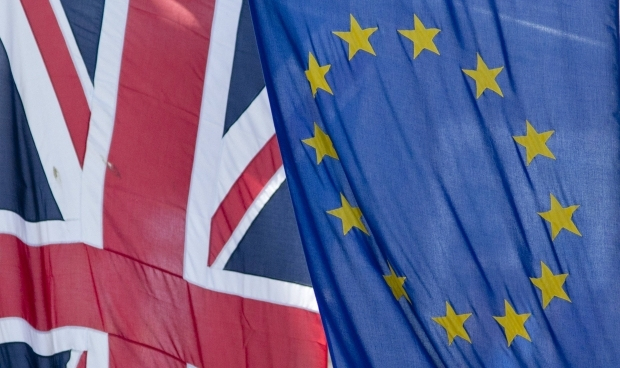"Russian interests are where the Russian language is spoken. If we speak the same language, they will bring their troops to 'liberate' us and annex us to themselves," urge the stars of the debut video of a Ukrainian project called Switch to Ukrainian. They are Ukrainian soldiers and volunteers that have spent the last year and a half fighting off a camouflaged Russian invasion in the Ukraine's East. The video was released on the Day of Ukrainian language, November 9.
Ukraine is a country where roughly half speaks Ukrainian, the state language, and the other half - Russian, though the division line is blurred: surzhyk, a mix of Ukrainian and Russian in differing proportions, is Ukraine's "vulgar Latin." Again, roughly - the villages and the West speak mostly Ukrainian, the cities and the East - Russian. 67,5% of Ukrainians declared Ukrainian as their native language, according to a recent census. Most Ukrainians are bilingual.

This is a situation that is a result of centuries of Russian rule and the subsequent language policies of the USSR. From 1654 onward, the part of Ukraine that was swallowed by the Russian empire experienced an assault on its statehood and nationhood. Exterminating the Ukrainian language was an essential part of the strategy: such legislative acts as the Ems Ukaz
and Valuev circular, which forebode publications in the Ukrainian language.
During Soviet times, Ukrainian was pushed out of education and science and was firmly associated with the language of the village. Russian was promoted as the language of the Soviet nation that communist leaders attempted to forge our of the USSR's array of ethnicities and nationalities. Scoffed and mocked, it was portrayed as a provincial dialect, and villagers would forget their mother tongue and teach their children Russian when making the migration to the city - a tendency that continues to the very day.
Russia's president Vladimir Putin has stated on many occasions that it is his duty to protect Russian speakers that are supposedly oppressed in Ukraine - an argument that supposedly legitimizes his military interference in a sovereign land, sending troops and weapons to Donbas and orchestrating a military takeover of Crimea.
Ironically, it is Ukrainian speakers that need protection in Ukraine.
According to a 21 June 2015 investigation of the portal language-policy.info, only 4.81% of songs on Ukraine's top-radio stations are in Ukrainian. Russian songs scored 38.88%. TV channels fared
a bit better: 28.8% had Ukrainian-language content, 27% was Russian, 21% was Russian with Ukrainian subtitles (a total of 38%), and 24% was mixed.
The situation with published press is worse - this internet meme about languages of magazines sold in Ukraine's capital speaks a thousand words:

Until a social movement led my Roman Matis called "They will understand anyway" [I tak poimut] started their campaign in 2012 to require businesses to have websites, menus, apps, instructions in Ukrainian, as well as provide Ukrainian service to Ukrainian-speaking customers, Ukrainian language was mostly absent in the service sphere.
In general, the language situation in the country is well described in this picture:

But things changed after the start of the Russian aggression in Donbas. More Ukrainians started to speak Ukrainian, and less support the idea of making Russian a second state language.
"Many Ukrainians would like to speak Ukrainian, but don't have the environment for that," says Nina Prokopieva, a National Guard soldier. Like others in the video, she urges her compatriots to switch to Ukrainian, and the government to help the Ukrainian language recover after centuries of extermination.
For them, it's a question of Ukraine's safety. Russian-speakers are twice as prone to nostalgia about the USSR than Ukrainian-speakers, a poll by the Rating sociological group found, the dissolution of which Putin considers to be the largest geopolitical catastrophe of the XX century.




